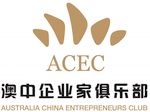Richard Yuan, Chairman of Australia China Entrepreneurs Club, discusses RCEP and Global Trade
- Written by ACN Newswire - Press Releases

|
|
RCEP can connect approximately 30% of the world's population and development and generate substantial income in the right political context. And, it can raise world income by US$209 billion and global trade by US$500 billion annually by 2030 according to Richard Yuan, a Chinese national living and working in Australia who is Chairman of the Australia China Entrepreneurs Club and International Ambassador of the SME Association of Australia.
People can estimate that the total losses in the trade war between the US and China are covered, not for China or the United States, by the RCEP and CPTPP together. The new agreements will make north and south-east Asia's economies more efficient by joining the forces in technology, production, agriculture and natural resources, said Yuan.
Although the RCEP is less stringent than the CPTP, its impact is remarkable. It stimulates supply chains across countries but addresses political sensitivities as well. Its treatment of Intellectual Property will create obligations for many members, and it does not mention any of the core CPTP chapters concerning work, the environment or state enterprises. ASEAN-focused trade deals, however, tend over time to strengthen.
The RCEP, dubbed 'led by China' by some, is actually a victory for Asian middle-power diplomacy. The importance of an East-Asian trade agreement has long been recognized, but neither China nor Japan, the largest economies in the region, were politically appropriate as project architects. In 2012, the impasse was overcome by an ASEAN agreement, including the membership of India, Australia and New Zealand, and ASEAN was entrusted with the negotiations.
Yuan believes that because of the deficit balance, domestic pressures and uncompetitive manufacturing in some sectors, India preferred not to join the RCEP, with fears that their participation would lead to mass imports of Chinese manufactured goods and agricultural produce from New Zealand and Australia, causing considerable effects both for its textile, aluminium and electronic industry as in agriculture.
However, one of the fundamental critiques of the RCEP is, considering all those benefits, that unlike the CPTPP, it concentrates on reducing tariffs, regardless of non-tariff obstacles, such as environmental security and labour rights in line with the new generation of commercial agreements, as well as regulatory approval.
Although the negotiating countries to the RCEP undertook to sign the agreement in 2020, with ratification in 2021, this agreement does face several challenges. One of them is Australia's and New Zealand's commitment to improving worker's rights and security and the environment through more robust agreements with standards, states Yuan.
All of this represents Asia's renewed push towards free trade and economic integration, which in turn would contribute to protecting fair trade based on rules and multilateral trade. The negotiation of RCEP is also a reflection of Asian economic integration and the capacity of the negotiating countries, considering the gaps in their political systems and levels of growth, to manage these differences through RCEP negotiations. It is a strong message and a clear example of pragmatism and economic cooperation, and for those in the South China Sea and the Pacific between China and Japan, their territorial disparities.
What RCEP means for Australia?
Yuan's key analysis of the RCEP's economic prospect indicates that Australia might not have been successful in salvaging greater benefit from the ongoing US-China trade war. This is primarily because Australia as a market and economic house is not directly involved in the trail of the economic powerhouses, and the consequences of which mean that while other countries benefit from export surplus, Australia is hit hard.
Two of the 'Five Eyes' countries - the United States and New Zealand - were beneficiaries of the trade war, and the ongoing saga of the worsening Australia-China relationship, at the expenses of Australian barley and lobster farmers.
Keeping in mind that the diplomatic relations between Australia and China still hang loose, New Zealand's foreign minister, Nanaia Mahuta stepped in as a gesture of goodwill, mediating a resolution and between the countries. However, China seems unlikely to step in the direction. Their ongoing boycott and sanctions cause no benefit to either country. RCEP pushed both countries to set aside their poor relations and served as a face-saver to form an indirect partnership.
Real experts like Yuan, who has been appearing only as "Australia-China Connector", are hopeful that RCEP is a positive step in the right direction and can significantly prove in mending the depleting relationship of China and Australia. It may set a new course in both country's political history involving each to finally abandon their opposition and form a mutually beneficial relationship.
Media contact Australia China Entrepreneurs Club, Kelly Bao, Executive Assistant, E: ea.ceo@abcworld.com.au, Tel: +61-2-92801155, https://www.acecclub.org/
SOURCE: Australia China Entrepreneurs Club
Copyright 2021 ACN Newswire. All rights reserved. www.acnnewswire.com
Authors: ACN Newswire - Press Releases
Read more //?#


